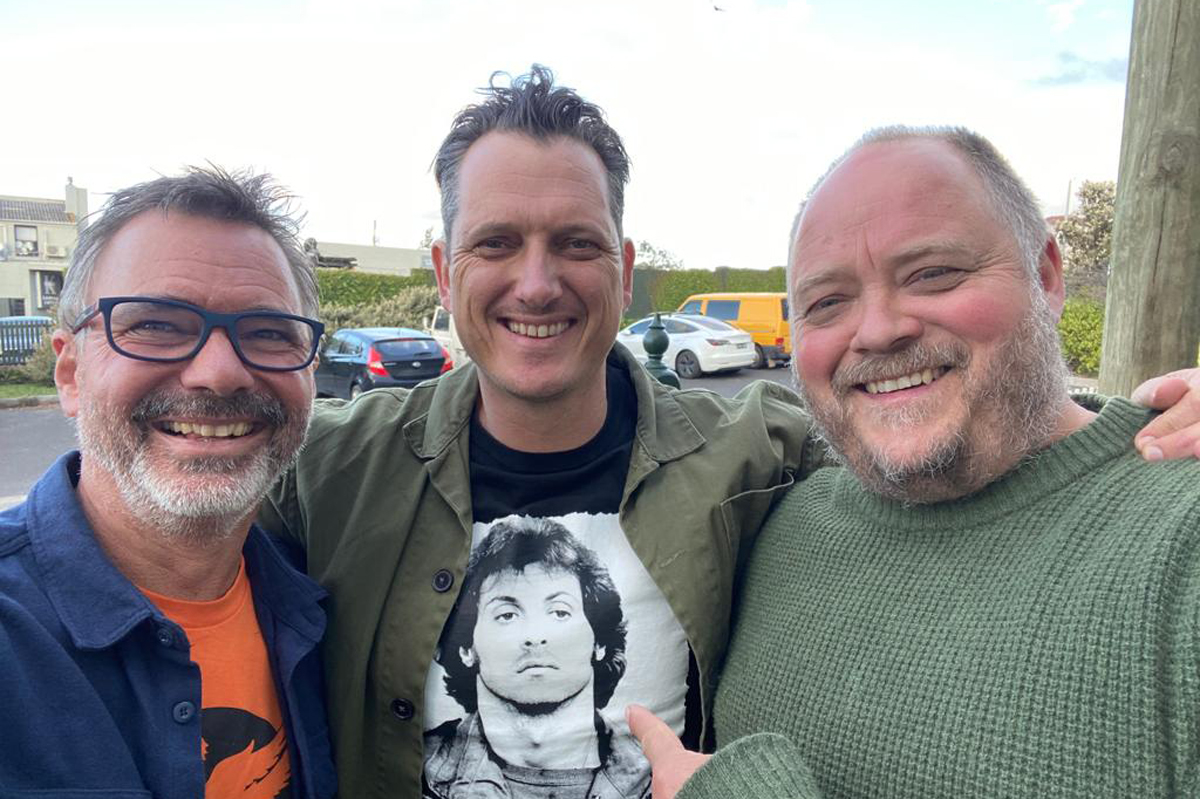FORMER Mornington resident Damien Mander and his charity, the International Anti-Poaching Foundation, are continuing to make headway in the fight against wildlife poaching in Africa. Now, the self-confessed Mornington schoolboy “ratbag” has joined with Sydney philanthropist and businesswoman Judith Neilson to make a big impact on the global stage.
Mander, a former Australian Royal Navy Clearance Diver and special operations military sniper who joined the Australian Defence Force at 19 and spent three years in Iraq, started the IAPF in 2009, focusing on training rangers in the tactics of modern warfare used by skilled elite special forces.
In Mornington recently to visit family and friends, Mander outlined some of his hopes for the protection and preservation of Africa’s wildlife, and the next steps for the IAPF.
The not-for-profit has just received a $1 million towards its efforts to fight poaching from the Judith Neilson Foundation to be used to recruit additional women as wildlife rangers in Zimbabwe under the IAPF’s Akashinga – Nature Protected by Women program in Zimbabwe.
The program protects areas of African wilderness, including one of the world’s largest remaining elephant populations in Zimbabwe’s Zambezi Valley.
Australian woman Judith Neilson was born and raised in Zimbabwe, and shares Mander’s commitment to empowering African communities, particularly women, to be part of social growth. Her philanthropy has been recognised by her appointment as a Member of the Order of Australia and the awarding of an honorary doctorate by the University of New South Wales.
Neilson said Mander’s Akashinga program’s focus on supporting marginalised women in rural areas, hand in hand with delivering infrastructure upgrades for healthcare, education and clean water, were vital for community-led conservation having impact at scale.
“The women of Akashinga have proven this and I am excited to be supporting them as they expand their work in Africa,” she said.
Mander said the IAPF team was grateful for Neilson’s generosity and trust.
“The commitment in honouring her Zimbabwean roots through the women of Akashinga, who are building new futures for themselves and communities while protecting the natural heritage of Zimbabwe, is indicative of the shift needed in global philanthropy,” he said.
“The health of the planet supersedes the health of all else, and this begins with community upliftment and empowerment. Without nature, we simply have no future.”
The Akashinga program started in 2017 with a group of 16 women, all survivors of gender-based violence and abandonment, many impacted by AIDS and HIV. Their efforts had a rapid impact, dismantling local poaching syndicates and driving a downturn in wildlife crime across the region. Six years later, the program has expanded from Zimbabwe to protect some of the largest wild landscapes left in Africa.
The program trains and deploys women into ranger roles, while addressing the broader needs of surrounding communities, including education, clean water, healthcare and infrastructure development. The IAPF employs more than 500 staff across 8.5 million acres in southern and eastern Africa, and the goal is to see 1000 women protecting 15 million acres of wilderness by 2026.
The IAPF also operates the internationally recognised ISO 9001 certified LEAD Ranger program, which delivers tailored training, long-term support and mentoring to develop wildlife crime enforcement leaders and instructors who remain based in the ecosystems they are protecting.
Mander said that with 3.7 million hectares of wilderness under the custodianship of more than 500 personnel, the women of Akashinga were making an increasing impact of global magnitude.
Their wilderness portfolio is more than half the size of Tasmania, and the goal is to expand to 12 million hectares by 2030, empowering hundreds of communities and thousands of women.
IAPF executive director Melody Westen described Neilson as a visionary.
“Her wide-ranging focus on supporting social justice issues is a continuing legacy for us all to consider,” she said.
Mander, who visits the Mornington Peninsula when he can, said Neilson’s “generosity continues to inspire others to believe in the goodness of humanity and our link with nature”.
“We started with one nature reserve, we now have eight former trophy hunting reserves, and we are scaling towards a staff of 1000 women within five years protecting 20 of these wilderness areas that would otherwise have lost to human settlement and agriculture.”
“We’ve partnered with local communities in the long-term management of former trophy hunting areas. In the pilot project we were able to demonstrate that we are putting the same amount of money into the community every 34 days as what trophy hunting was able to do per annum. Akashinga, for these communities, creates a viable economic alternative to trophy hunting.
“While arresting poachers is the least favourite part of the job, with 7.5 billion people on the planet, at some point we must draw a line in the sand and say if we don’t hold on to what we have left, there will be nothing left, and then we are next.”
Mander, 42, has also co-founded LEAD Ranger, which works closely with the Thin Green Line Foundation – founded by peninsula resident and award-winning conservationist, documentary filmmaker and park ranger, Sean Willmore. In 2004, Wilmore set off around the world to make a documentary about the stories and plight of park rangers, and in 2021 co-founded the Conservation Landscape Alliance, a collective of organisations working together to achieve landscape-scale conservation in the community owned wilderness areas of Africa.
He is the winner of the 2019 Winsome Constance Kindness Gold Medal, an international recognition for services to animals and humanity.




